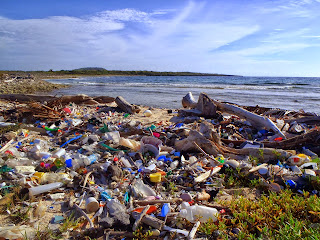We can
still foolishly debate whether mankind is significantly contributing to climate
change, but after sailing the earth’s five major oceans, the Volvo Ocean Race
sailors have delivered their undeniable verdict when it comes to
pollution. Humans are using the oceans of
the world as a dumping ground for everything under the sun, from plastics, to
chemicals, to human waste.
And every four years, when the
Volvo veterans sail the world anew, it gets worse. Much worse.
www.poopy.org
www.poopy.org
You
can almost feel the tears dripping from the words of Bouwe Bekking, Team
Brunel’s veteran skipper now on his seventh circumnavigation of the globe. “I
was feeling really sad about the amount of rubbish off the Indian coast, but
now that we are sailing well in the Malacca
Strait
www.gulfhypoxia.net
For the Volvo rookies the extent of the pollution has been more obstacle than disappointment.
Francisco Vignale, aboard the Spanish boat MAPFRE described the scene on the third leg from
www.plasticpollution.org
This is not to say that all of the
oceans have been fouled with human waste, though the effects certainly can be
seen far and wide, from Sargassum seaweed mats being fed by excess nitrogen in
the Caribbean, to fish kills in the Indian Ocean and Brazil .
Matt Knighton - Abu Dhabi
Matt Knighton - Abu Dhabi
Ricardo Moraes/Reuters
I have been covering the Volvo
Ocean Race for almost twenty years and it is heartbreaking to see how the
descriptions have changed over the last two decades. And there is a predictable pattern. The more people, the more polluted the
waters.
www.theplasticfreetimes.com
The oily masters of the Middle East are doing their best to kill theGulf of Oman
oneocean.cbc.ca
India
is rapidly destroying the Arabian Sea and Bay of Bengal .
www.worldculturepictorial.com
The Indochinese nations ofThailand , Cambodia
and Vietnam are laying waste
to the Andaman Sea
www.5gyres.org
China and the Philippines are using the South
China Sea for their own public toilet and garbage dump.
www.wsorc.org
AndMalaysia
and Indonesia have turned
the Java and Banda
Seas
www.theplasticfreetimes.com
The oily masters of the Middle East are doing their best to kill the
oneocean.cbc.ca
www.worldculturepictorial.com
The Indochinese nations of
www.5gyres.org
www.wsorc.org
And
www.geog.ucsb.edu
Corinna Halloran, aboard Team
SCA, couldn’t believe her eyes as they sailed near Singapore
www.scind.org
Ironically, the nations responsible
for the most pollution are also the same ones overharvesting virtually all of
the aquatic resources. It’s like some
desperate push to catch everything and anything in the water, before they are
all gone.
Armory Ross - Alvimedica
But all is not gloom and doom. New Zealand's pristine waters still teem with ocean life. And large stretches of the South Atlantic and Pacific Oceans are still thriving.
Many
people and groups around the world, including the Volvo Ocean Race and its corporate
sponsors, are trying to protect endangered wildlife, through efforts like its
“Save the Albatross” campaign. And small
non-profits like the Rozalia Project, are fighting pollution and educating the
public about this planetary problem by "fishing" garbage out of the
sea and collecting trash from the beaches around the world. But it is a monumental task indeed.
Leg
6 of the VOR was a chess match from start to finish. The
winds were predictable and steady. And
there wasn’t a lot of strategy because all six boats essentially sailed the same
route. For the 5,000-mile journey, the
boats were rarely more than few miles apart and often within sight of one
another. Every six hours when the
position reports came out the leader board changed. The race was all about team performance and
boat speed. If you could go just one
knot faster than the others, you could go from fifth to first in just a few
hours. Needless to say it was extremely
stressful and hard on the crews because they could never relax.
For
hometown favorite Alvimedica it was like riding an emotional roller
coaster. Onboard reporter, Amory
Ross, himself a Newport-based local, wrote: “It has happened so many times in
this race, that after thousands and thousands of miles spent crossing this
world’s oceans, it is the final hundred or so that decide the outcome.
After
19 days of match racing from Brazil
to Newport , Donfeng rebounded from their de-masting
and last place finish in Leg 5, to squeak out a three minute victory over Abu Dhabi
Next Stop –
Lisbon , Portugal
VOLVO LEADER BOARD| Leg 1 |
Leg 2 |
Leg 3 |
Leg 4 |
Leg 5 |
Leg 6 |
Overall |
|
| 1 |
3 |
2 |
2 |
1 |
2 |
11 |
|
| Alvimedica |
5 |
4 |
3 |
4 |
3 |
5 |
24 |
| Brunel |
3 |
1 |
5 |
5 |
4 |
3 |
21 |
| Dongfeng |
2 |
2 |
1 |
3 |
DNF-8 |
1 |
17 |
| MAPFRE |
7 |
4 |
4 |
1 |
2 |
4 |
22 |
| SCA |
6 |
6 |
6 |
6 |
5 |
6 |
35 |
| Vestas Wind |
4 |
DNF-8 |
DNS-8 |
DNS-8 |
DNS-8 |
DNS-8 |
44 |





























No comments :
Post a Comment